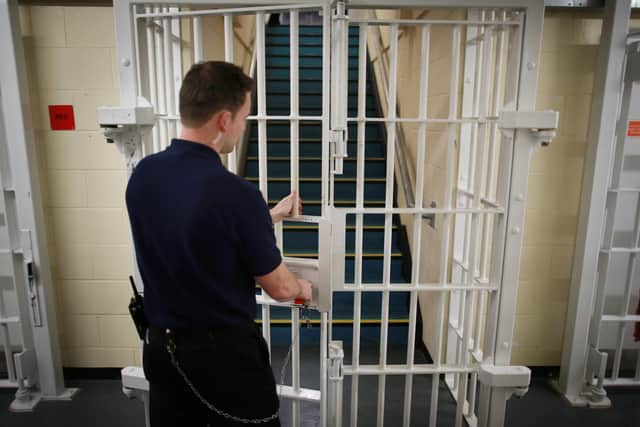Hard to see how prison numbers will come down in the face of public opinion - Dr Alan Billings
But this year has been different – not only because of climate upheavals but because some government departments seem to be operating as usual, not least the Home Department. There have been initiatives around migrants and we are bracing ourselves for more announcements on policing and criminal justice in the coming weeks.
The reason is quite simply because this summer we are probably only a matter of months away from a general election. A great deal of political virtue signalling is starting to happen. The government is seeking to distinguish itself from the opposition – and vice versa.
Advertisement
Hide AdAdvertisement
Hide AdI’m hoping that we don’t see anything that will lead to more people heading for our prisons, not least because we have four in South Yorkshire with many staff living locally.


Across the country, prisons are full – dangerously so, some would say. Yet we know that if we want better outcomes, we need fewer prisoners. We need this for good rehabilitation. We need it for the sake of prison staff who have to manage prisons and safeguard those in them.
But here, public perception is often well adrift of the reality; the pressure from the public will be for more offenders going to prison and those found guilty of serious crimes spending more time in them.
Yet this is already the reality. More people are going to prison than ever and sentences are getting longer. In 2022, for example, more than three times as many people received sentences of ten years or more than was the case in 2008. And for more serious, indictable offences, the average sentence is now five years and two months – two years longer than it was in 2008.
Advertisement
Hide AdAdvertisement
Hide AdThose serving mandatory life sentences for murder are spending more of their sentence in custody. In 2001 this was 13 years. It is now 18. And judges are also imposing longer minimum terms. In 2001 this was 13 years. In 2021 it was 21.
We also send more people to prison than anywhere else in western Europe. But the public do not believe any of this. When polled, around two thirds of the population thought that sentencing was not tough enough – by which they meant that the sentences were too lenient. Over the past 25 years, sentences on average have got longer, but 56 per cent of those surveyed thought they had reduced. And if we exclude from the figures those who didn’t know one way or another, 75 per cent said sentences were shorter today. How can we reduce prison numbers? Two answers suggest themselves but neither will get past public opinion.
On the one hand we can stop sending some people to prison for very short sentences. The evidence is that these very short sentences are in any case less effective at reducing crime than well-managed community sentences, not least where an offender has mental health issues or has been prolific.
The other possibility would be to release some carefully selected prisoners earlier – but again, public opinion is unlikely to accept this without a careful case being consistently made by those who could influence public opinion.
A shortened version of the Police and Crime Commissioner for South Yorkshire’s latest blog post.